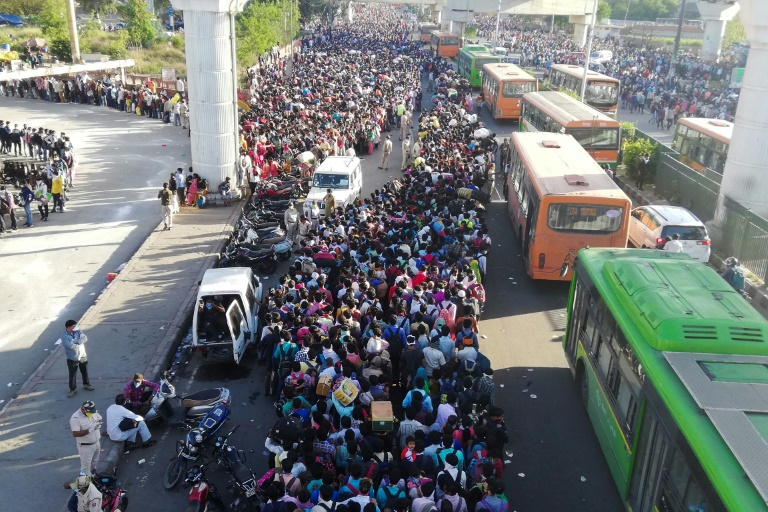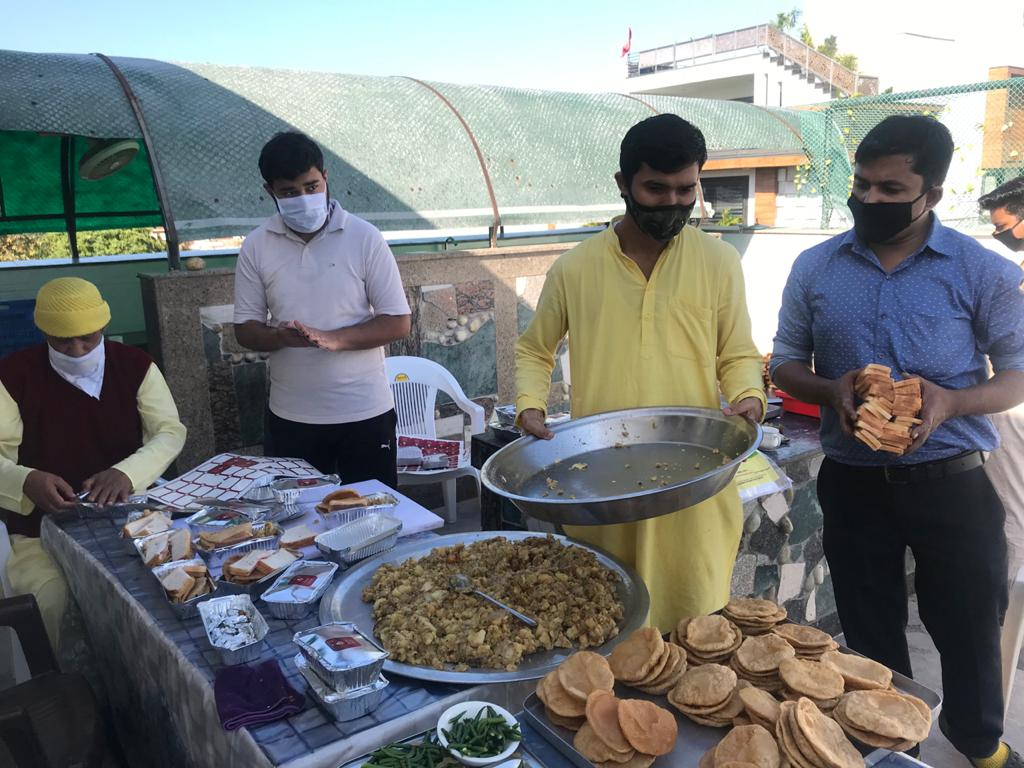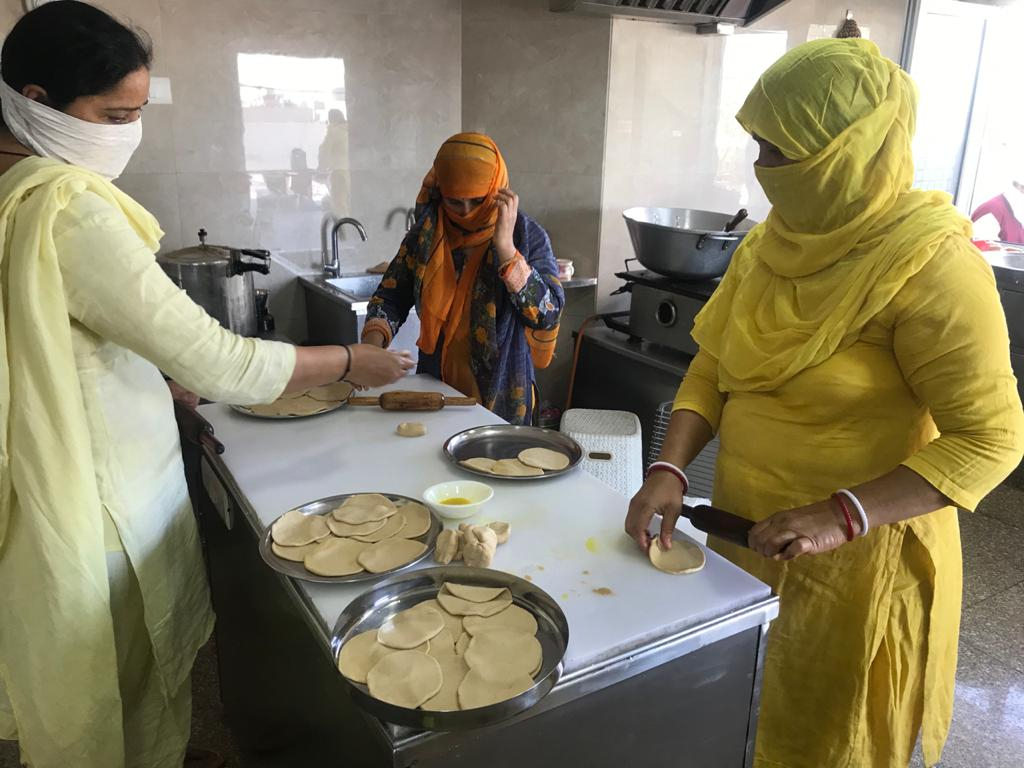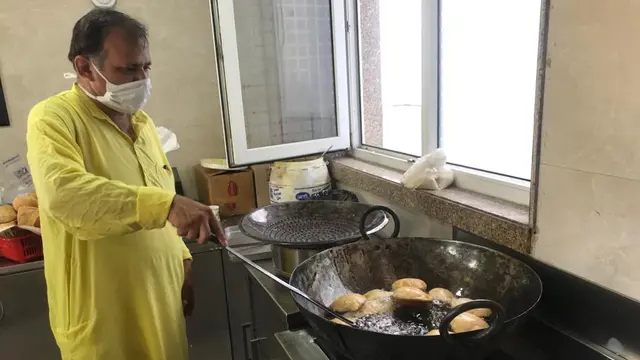
Migrant workers and their families line up at New Delhi's Anand Vihar bus terminal to return to their villages during a government-imposed nationwide lockdown as a preventive measure against COVID-19, New Delhi, India, March 28, 2020. /AFP
The 21-day lockdown in India has turned the lives of thousands of migrant workers' upside down in India. Thousands of poor migrants, who are struggling to survive in the absence of their jobs due to the countrywide lockdown announced by Indian Prime Minister Narendra Modi on March 24, are struggling to return to their hometown.
There is a mass exodus of laborers to their native villages as they feel it is better to head back home than beg and starve in the cities. Thousands are going home by foot as the public transport remains suspended in this period. They are stranded across highways between states as it takes days to walk hundreds of kilometers by foot.
Many are walking with their families thus making the journey even more difficult.
Rahul, 35, who has been walking for more than two days, complains, "There is no facility to live in the city. We could not find wood to cook food so we decided to go home to our village. Once a truck dropped us here on the highway and when we did not get any transportation so we have been walking. I am carrying my children on my shoulders and walking home."
On Saturday after many media reports, the state governments stepped in to address the problem by starting special buses to take these workers home.
With the lockdown, millions of daily wage earners are facing a grim situation. The most pressing issue is of hunger as they have no money to fend for themselves. The state governments are giving them money and also arranging for them to get two free meals but it will take time for the system to be streamlined as the lockdown took the country by surprise.
The Delhi Chief minister Arvind Kejriwal announced on Saturday, that the system is now "ready to feed 400,000 poor people."
"We have organized 800 centers to distribute food to the poor in Delhi. Now we have flying squads who are doing rounds in the city and handing over food packets to the hungry on the streets," he added. "We are facing some teething problems but we will be able to streamline this in next two days."

Members of Vishvas Foundation cook for the poor migrant workers in Delhi, India. /CGTN
While the government is making these arrangements many charitable organizations, religious institutions, non-governmental organizations and individuals have come forward to provide food to the needy.
"The pictures of thousands stranded on the streets disturbed our members," says Purshottam Vishvas, a senior member of Vishvas Foundation, a charitable trust.
"We wanted to do something for the hungry. We decided to cook food and make packets to distribute among the people stranded on the borders of Delhi. We have tied up with the administration distribute food for the next few days, till the situation is under control," he adds
In the satellite town of Gurugram another initative to save lives of 92 families was taken by an organization Aman ki Pehal. Vimal Bhai, a member of the organization, along with his friends organized rations for ten days for the families who live in extreme poverty.

Members of Vishvas Foundation cook for the poor migrant workers in Delhi, India. /CGTN
"It is a village of artisans who are daily wagers. These families do not have enough resources to stock rations for three weeks. We have given them dry rations to last for 10 days and will be collecting some more funds to send a second lot after ten days. Although I must say that it was a nightmare dealing with the administration, to provide food to these poor families; something which the government should be doing others are doing," says Vimal Bhai.
While steps are being taken to help millions, the severity of the situation is such that some asymptomatic travelers heading home might endanger the lives of many others. Some village heads are not allowing the migrants to enter their homes at the end of their torturous journey in order to protect other villagers.
 简体中文
简体中文

